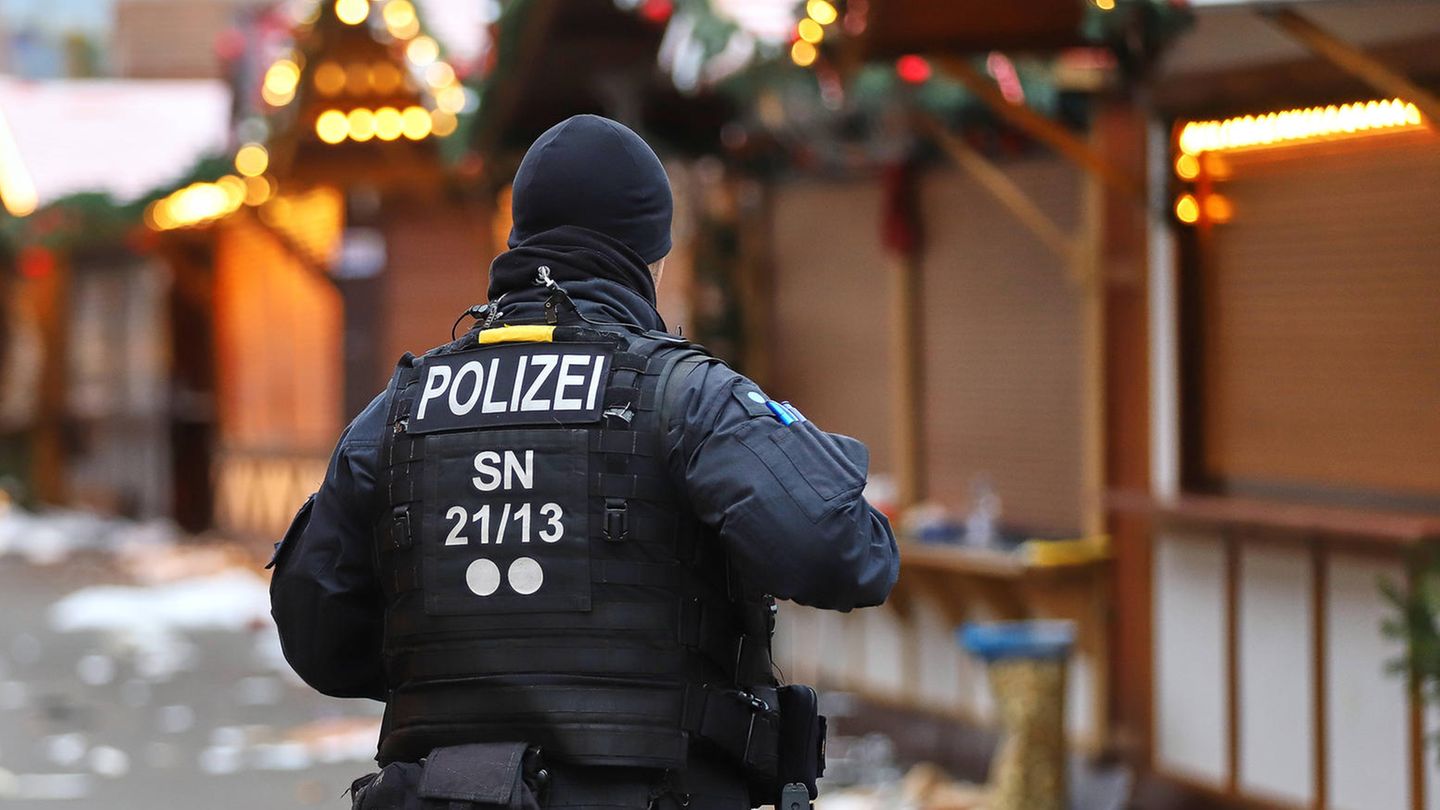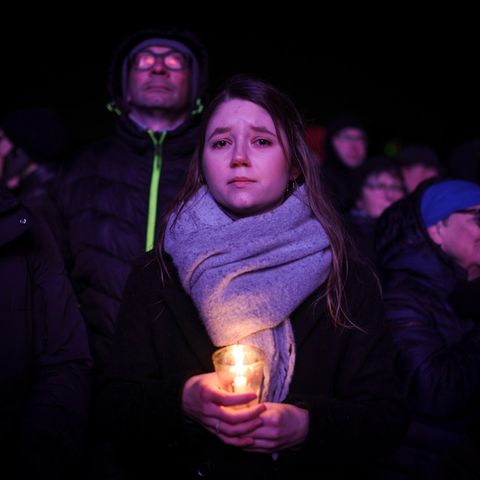Advice in advance
Did the authorities fail in the attack in Magdeburg?
Copy the current link
The attacker in Magdeburg had already attracted attention. An expert gives a guess as to why he might have fallen through the cracks.
Could the Magdeburg attack have been prevented? The debate is gaining momentum after last Friday’s attack, in which five people died and more than 200 were injured. More and more information is becoming available to the public, which suggests that there could have been an increase in breakdowns beforehand.
It’s not just about whether the security concept of the Magdeburg Christmas market was sufficient, for example whether the security bollards installed were sufficient. But also about whether the security authorities made serious mistakes in advance – because the suspected perpetrator Taleb A. had already been noticed several times before. Did the authorities miss clues or did they not follow up on them sufficiently?
Lars Castellucci, the SPD’s domestic politician, demands that it be understood in detail “why we were not able to be vigilant beforehand” in ZDF’s “Morgenmagazin”. The timing is sensitive for politics; the attack comes during the election campaign. So far, it is noticeable that most parties are trying to be prudent and reserved – better not to jump to conclusions, that seems to be the motto.
Magdeburg attacker: His hatred of the German state grew
Unlike the attack in Solingen in August, when an attacker stabbed three people at a city festival, the discussion this time, at least so far, is not primarily about immigration. This is also due to the profile of the perpetrator in Magdeburg: Taleb A., who came to Germany from Saudi Arabia in 2006, cannot be assumed to have an Islamist motive. The recognized refugee, who worked as a doctor in this country, has been known for his clear criticism of Islam in the past and has often retweeted statements from AfD politicians on the social platform “X” who condemned migration to Europe.
In recent years, the 50-year-old’s hatred has obviously been directed more and more towards the German state, and conspiracy theories and delusions can also be seen in his statements in interviews and on social media.
Tricky in this case: Numerous warnings had been received about Taleb A. The Federal Office for Migration and Refugees has now confirmed that it had already received a tip about A.’s dangerousness in 2023. The Saudi Arabian secret service is also said to have warned the German authorities about the man several times. Have these warnings not been adequately checked?
One thing is certain: Taleb A. had already been sentenced to a fine because of a threat, as the Interior Minister of Mecklenburg-Western Pomerania, Christian Pegel (SPD), confirmed. A., who lived in the northern state at the time, was in dispute with the state’s medical association in 2013 over the recognition of examination results. At that time he threatened something “bad with international significance” and also referred to the attack on the Boston Marathon in 2013, the “Welt” quotes from the Rostock district court’s ruling.
Expert: People like Taleb A. “don’t fit in well”
He is said to have threatened a local authority in Stralsund, where Taleb A. asked for financial support, in a similar manner. According to Pegel, there was then a so-called threat speech. The police informed A. that they would take a closer look at him. However, the man was not classified as a threat. According to Pegel, the investigations at the time did not reveal any evidence of real preparations for the attack. And they did not reveal any references to Islamist attitudes.
Was the danger overlooked because Taleb A. could not be fitted into the category of Islamist? Terror expert Peter R. Neumann sees a starting point here: “In Germany, people think very much in established, rigid categories: right-wing extremist, left-wing extremist, Islamist,” the scientist from King’s College London told “Spiegel”. People like Taleb A. “don’t fit in well there.”
Neumann posted a suggestion on “X”: In Great Britain the authorities had developed a special category, menaces with “mixed, unclear and unstable ideology.” Although the additional category “delegitimization of the state” was introduced in this country, Neumann considers the British classification to be more effective. Perhaps such a category could help “to bring apparently ‘confused’ and ambivalent assassins like the one in Magdeburg more into the focus of the security authorities.”
This also seems to have already arrived in politics. Konstantin Kuhle, domestic politician for the FDP, said on “Deutschlandfunk” that there was “powerlessness” in the authorities as to how to deal with people who had expressed threats of violence in a confused manner for years.
The SPD domestic politician Sebastian Fiedler made a similar statement: He has been preaching this for many years, said the former chairman of the Association of German Criminal Investigators star. “We need professional management of people who pose a risk of becoming violent criminals at all points.” Fiedler refers to the “PeRiskoP” project from North Rhine-Westphalia, “although it obviously failed in Solingen”. This concept is intended to identify high-risk people at an early stage, regardless of political or religious motives.
Special meeting in the Interior Committee
CDU General Secretary Carsten Linnemann also sees the lack of data retention as a failure. A new attempt at data retention is needed, he said star. “It must be possible to store IP addresses to combat serious crimes such as the attack in Magdeburg.”
What exactly happened – or didn’t happen – in the run-up to the attack should now be clarified. Federal Interior Minister Nancy Faeser (SPD) announced on Sunday that “every stone will be turned over by the federal authorities” in dealing with the attack in Magdeburg. Next Monday, the Interior Committee of the Bundestag and the Parliamentary Control Committee, which monitors the intelligence services, want to deal with the attack in the Saxony-Anhalt state capital.
Terror expert Neumann points out another fundamental problem: most individual perpetrators were already publicly noticed before their attack. “99 percent of them will probably never put their threats into action,” he said in “Spiegel.” No one has yet found a good answer as to how to identify the one percent that is actually dangerous. “Part of the solution may be technology,” says Neumann. “Another part is that the security authorities hire the right people, for example more psychologists.” One thing is certain: There will be lessons to be learned from the attack in Magdeburg.
Source: Stern
I have been working in the news industry for over 6 years, first as a reporter and now as an editor. I have covered politics extensively, and my work has appeared in major newspapers and online news outlets around the world. In addition to my writing, I also contribute regularly to 24 Hours World.








